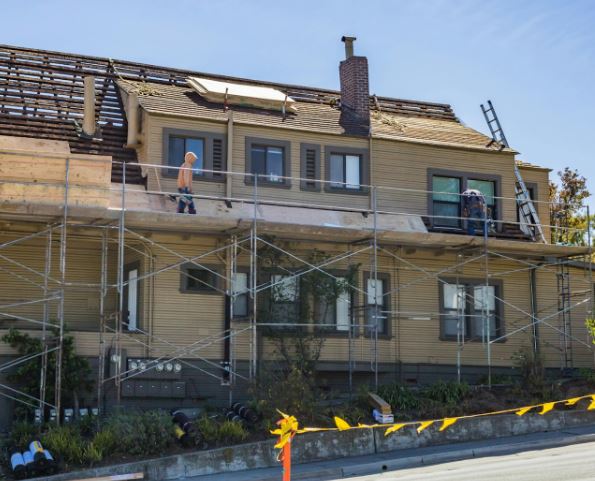Top Tips for a Smooth and Stress-Free Home Move To Canada

Relocating to Canada can be both an exciting adventure and a challenging undertaking. Whether you’re moving for a job opportunity, education, or a fresh start, the process often involves numerous tasks that can quickly become overwhelming. From managing your belongings to understanding customs requirements, every step requires attention to detail and proper preparation.
Here’s how you can streamline the process, allowing you to focus on adjusting to your new life without the added stress of managing every detail on your own:
Start Early with a Detailed Plan
A successful move begins with a thorough plan. Start by outlining a timeline that details every task, from creating an inventory of your possessions to arranging transportation and housing. Breaking these responsibilities into smaller, manageable steps can help you stay on track and prevent last-minute stress. Allocate time for obtaining the necessary documentation, such as visas and permits, and schedule any required appointments well in advance. A detailed plan keeps you organized and ensures that critical tasks, such as travel arrangements and setting up services in your new home, are completed on time.
To make the process even smoother, consider creating a checklist for everything you need to accomplish before the move. This way, you’ll have a clear overview of your progress and avoid overlooking important steps. An early start allows you to adapt to unexpected changes without derailing your entire schedule.
Partner with Experts for Seamless Support
Relocating to Canada, especially from another country, involves more than simply transporting items. Customs regulations, shipping logistics, and handling fragile or valuable belongings can add layers of complexity. This is where full-service movers can make all the difference. These professionals provide end-to-end solutions, taking care of tasks such as securely packing your items, transporting them safely, and ensuring they arrive intact at your destination.
Their expertise extends beyond logistics. Full-service movers are familiar with Canadian customs procedures, which can save you time and prevent complications during the border crossing. For instance, they can assist with filling out required forms and advising on restricted or taxed items. By entrusting these responsibilities to skilled professionals, you gain peace of mind and can focus on other aspects of settling into your new environment. This level of support is especially valuable for international moves, where the stakes are often higher and the challenges are more nuanced.
Downsize and Simplify Before You Leave
One of the most practical ways to streamline your move is by reducing the number of belongings you take with you. Start by assessing your possessions and determining which items are truly essential. Clothing, appliances, and furniture that you no longer use or need can often be donated, sold, or recycled. This step not only lightens your load but also minimizes transportation costs.
For items you’re unsure about, consider their functionality and sentimental value. If something hasn’t been used in a year, it may not be worth bringing. On the other hand, meaningful keepsakes that hold personal significance should be prioritized. Simplifying your inventory also helps you start fresh in your new home, creating a clean and uncluttered living environment from day one.
Hosting a garage sale or using online platforms to sell items can help offset some of the moving expenses. Also, donating goods to local charities can provide a sense of fulfillment and give your items a second life. Decluttering isn’t just about reducing what you bring; it’s an opportunity to embrace a new chapter with fewer burdens and more room for what truly matters.
Use High-Quality Materials for Packing
The safety of your belongings during transit depends largely on the materials you use to secure them. Invest in sturdy boxes, heavy-duty tape, and protective padding such as bubble wrap or foam. These materials will help prevent damage to fragile or valuable items. For electronics, consider using original packaging if available, as it’s specifically designed to protect those items during transportation.
Labeling is equally important. Write detailed descriptions on each box, including its contents and the room it belongs to. For example, instead of labeling a box “kitchen,” specify “kitchen – plates and utensils.” This level of detail makes unpacking far easier and less time-consuming. Also, keep a separate box or bag for essentials you’ll need immediately upon arrival, such as toiletries, basic kitchenware, and important documents.
If you’re unsure how to pack certain items, research best practices or consult with professional movers for advice. Using high-quality materials and proper techniques protects your possessions and reduces the stress of worrying about potential damage during the move.
Familiarize Yourself with Customs Rules
Crossing international borders means adhering to customs regulations, which vary depending on the destination. Each country has specific rules regarding the items you can bring into the premises. Some goods may be prohibited, while others might require you to pay duties or taxes. To avoid delays or fines, research these rules in advance and make a comprehensive inventory of everything you’re bringing.
Certain items, such as plants, firearms, and alcohol, are subject to strict regulations. If you’re transporting high-value items, you may need to provide documentation to prove ownership or value. Professional movers with international experience can guide you through these requirements, ensuring your items meet all legal standards. Properly declaring your belongings at customs avoids complications and ensures a smoother transition into your new home.
For a seamless experience, prepare all necessary paperwork, including receipts for valuable goods and any forms required by Canadian customs. Being proactive about these regulations can save time and reduce the stress of navigating complex procedures during an already demanding process.
Arrange Temporary Accommodation
Finding a place to stay upon arrival is essential, especially if your permanent housing is not immediately ready. Temporary accommodation options, such as short-term rentals, serviced apartments, or extended-stay hotels, can provide a comfortable base while you settle in. Research and book your temporary lodging well in advance to avoid last-minute hassles.
Having a place ready for your arrival allows you to focus on other priorities, such as unpacking and setting up utilities in your permanent residence. Consider factors like proximity to your new home and access to amenities when selecting temporary accommodation. Staying in a well-equipped location during this transitional period can help make the adjustment much smoother.
Relocating can be a challenging experience, but with proper preparation and support, it becomes much more manageable. Starting with a detailed plan, partnering with professionals, and addressing essential steps like downsizing and understanding regulations can significantly ease the transition. Temporary accommodation and staying organized on moving day ensure you remain comfortable and in control throughout the process.
Whether it’s creating a smoother process for transporting your belongings or settling into your new environment, each step contributes to making the move less stressful. By taking a thoughtful and proactive approach, you’ll set yourself up for success as you embark on this new chapter.







